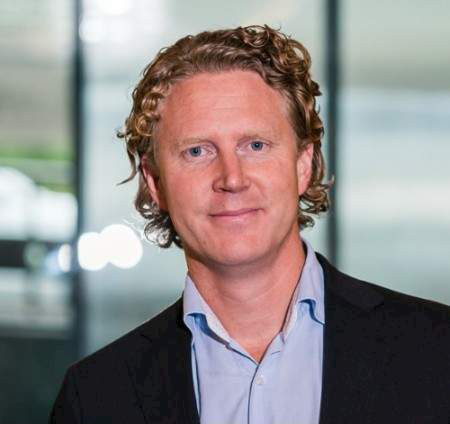Cognizant’s Green Rush report states that the impact of sustainability investments goes beyond regulatory compliance – a majority of respondents believe initiatives are also linked to business gains. EU is ahead of the rest of the world, and I believe Swedish companies are well-positioned in this context. Here, I explain why.
From a global perspective, Sweden is considered a pioneer in the implementation of the UN’s 17 SDGs; we were ranked the highest in several global comparisons in 2020. Sweden was also one of the first countries in the world that introduced a CO2 tax in 1991, still a cornerstone of Swedish climate policy.
However, as the new IPCC report was released earlier, the sense of urgency when it comes to sustainability initiatives and measures has naturally increased here too. Without a doubt, climate change is one of the most pressing challenges facing the international community. As it becomes an increasingly urgent global priority, we believe technology has a critical role to play in shaping the way everyday life can adapt and respond to climate challenges.
The awareness around sustainability is mirrored at Cognizant. Sustainability has become a component in everything we do; it’s an important part of the assessment in every large procurement, it’s on students’ agendas as they are searching for future employers, and it increasingly contributes to a company’s brand reputation. It’s also part of most innovations we are involved in.
Exploring dynamics behind sustainability
To better understand the dynamics behind sustainability initiatives, Cognizant’s Center for the Future of Work partnered with MindForce Research to survey 1,000 C-suite and VP-level business leaders across North America and Europe. The results are published in the Green Rush report.
Among other things, the survey data reveals a significant gap between US and European respondents. European organizations rank nine percentage points higher than their US counterparts when it comes to incorporating environmental sustainability into their overall business strategies.
Moreover, 54% of European companies say that it’s an integral part of their overall business planning today, rising to 77% of companies by 2025. Today, over 25% of European businesses rate sustainability as highly important to their operations. The conclusion? European leaders understand where the wind is blowing because they can see the legislative signals around them.
Looking beyond ESG reporting
What about Sweden specifically then? Since 2016, Swedish companies above a certain size must prepare a sustainability report, meaning that most Swedish companies Cognizant works with are already well aware of their responsibilities in this context. Now, the reporting will be harmonized between countries; the EU has recently adopted the new Corporate Sustainability Reporting Directive, which also affects Swedish companies.
Corporations in Europe must now prepare for a raft of regulations that will transition societies toward net-zero. However, many enterprises here approach sustainability beyond meeting the legislative targets only. Taken seriously, sustainability goes beyond the corporate climate pledge to a broader consideration of ESG to guide business strategy, technology investment and operational execution.
I believe the ecosystem approach is essential; large enterprises have responsibilities way beyond company walls. I am also convinced that a company that takes sustainability seriously not only does good for the planet but also for the business.
A leader in cleantech
Besides already established regulations linked to companies’ environmental responsibilities, Sweden is also a highly digitalized country (DESI summarizes indicators on Europe’s digital performance and in 2020 Sweden was ranked as number 2). This combination paves way for sustainable innovation and growth.
Currently, Sweden is one of the world’s leading nations when it comes to innovating, implementing and exporting cleantech solutions in areas like construction, recycling and urban planning. You have some cool examples of innovations here from a series of Tech for good events that Cognizant Sweden organized previously.
Cleantech is big business globally – and investors have certainly taken notice. According to some estimates, venture capital funds have invested $60 billion into more than 1,000 climate tech startups over the past seven years. By 2030, the investment in green-business startups and corporate innovation is projected to grow to $3.4 trillion.
Technologies that empower sustainability
What are the technologies at the heart of the green transition? In the Green Rush report, 77% of business leaders cited IoT as very important to meet their sustainability goals, with 72% also believing that smart grids and AI will be key to combating climate change. A core driver of the investments is companies wanting to gather more effective data on how their existing sustainability initiatives are working.
Another driver that we see is companies struggling to understand their carbon footprint across the value chain – and where actions must be taken. As a global company, Cognizant has enormous know-how when it comes to applying technologies like the above to streamline processes and to increase visibility, traceability and control, which, in turn, make it possible to tackle the environmental footprint.
Integrating sustainability at Cognizant
Last but not least, what do we do ourselves? We are integrating sustainability in everything we do. In early 2021, Cognizant joined UNGC, a worldwide network of more than 9,500 companies and 3,000 non-business participants that are committed to building a sustainable future by integrating principles into the company’s strategy, day-to-day operations, and organizational culture.
We also have a proud tradition of commitment to social responsibility through our associates’ volunteer efforts across the world, as well as the focused work of our Foundations. Among other things, we are involved in restoring India’s last natural marshlands together with Grundfos.
If you are curious to learn more, have a look at our ESG report.


















